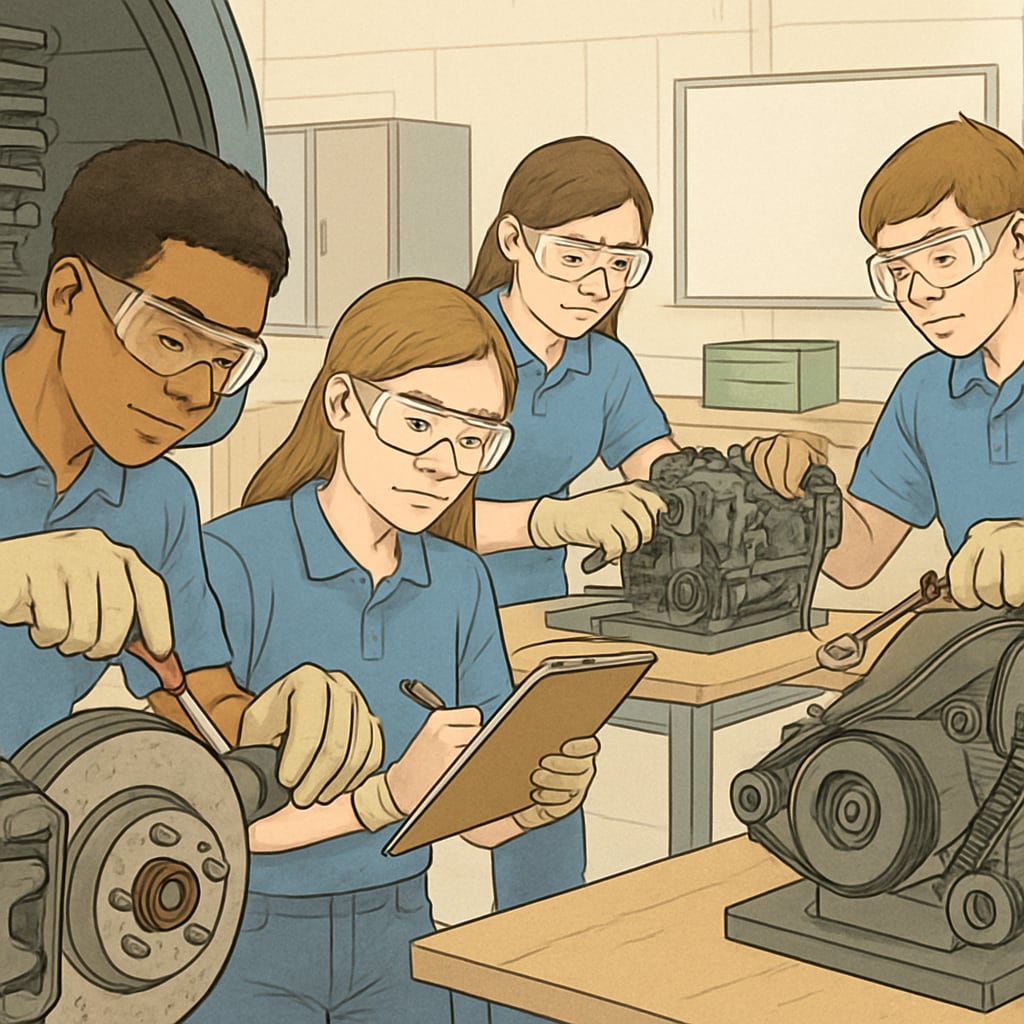For military personnel with a background in automotive technology, transitioning from an associate degree to a bachelor’s degree can unlock a broader range of career opportunities. This process often involves proper credit transfer, academic planning, and leveraging existing technical skills. By understanding the pathway to higher education, individuals can strategically enhance their qualifications and prepare for long-term success in the automotive industry.
Understanding the Importance of Advancing to a Bachelor’s Degree
While an associate degree in automotive technology provides a strong foundation, pursuing a bachelor’s degree offers deeper technical knowledge, leadership training, and improved job prospects. Many bachelor’s programs incorporate advanced coursework in areas like automotive engineering, business management, and sustainability, equipping students for roles in management or specialized technical fields.
For military personnel, this transition can also leverage the skills and discipline gained during service. Many universities value the structured training and problem-solving abilities developed in the military, which can complement an academic environment.

Maximizing Credit Transfer Opportunities
One of the key steps in transitioning from an associate to a bachelor’s degree is ensuring the transfer of as many credits as possible. For those with a military background, this often includes evaluating military training and coursework for academic credit. Programs like the Joint Services Transcript (JST) can help document military education and experience in a format that colleges and universities recognize.
Here are some tips for maximizing credit transfer opportunities:
- Research Articulation Agreements: Many colleges have agreements with community colleges or technical schools to facilitate seamless credit transfers.
- Work with Academic Advisors: Advisors can help map out the best path to ensure credits align with bachelor’s degree requirements.
- Utilize Prior Learning Assessments (PLAs): Some schools allow students to earn credit for work experience or certifications through PLAs.
By taking these steps, students can save time and reduce the overall cost of their education.
Building a Strong Educational Pathway in K-12
The journey toward a bachelor’s degree in automotive technology can start as early as the K-12 education stage. By fostering technical skills and career awareness during this time, students are better prepared for higher education and future career paths. For example, high schools that offer automotive technology programs or partnerships with local colleges can provide students with early exposure to the field.
Encouraging students to participate in STEM (science, technology, engineering, and mathematics) activities or automotive competitions can also spark interest in the industry. Moreover, guidance counselors can play a pivotal role in helping students understand the long-term benefits of pursuing higher education in technical fields.

Balancing Education and Career Goals
For military personnel transitioning to civilian life, balancing education and career goals is critical. Many universities offer flexible learning options, such as online programs or evening classes, to accommodate working professionals or those with family responsibilities. Additionally, leveraging military education benefits like the GI Bill can significantly reduce the financial burden of pursuing a bachelor’s degree.
In addition to technical skills, developing soft skills such as communication, leadership, and time management is essential. These skills are often emphasized in bachelor’s programs and can enhance career prospects in both technical and managerial roles.
Conclusion: The Road to Success
Transitioning from an associate degree in automotive technology to a bachelor’s degree is a worthwhile step for those looking to advance their careers. By leveraging credit transfer opportunities, planning an educational pathway early, and balancing education with career goals, students can achieve academic and professional success. For military personnel, the discipline and skills gained during service provide a unique advantage in navigating this journey.
As the automotive industry continues to evolve with advancements in technology and sustainability, a bachelor’s degree can position individuals to lead and innovate in this dynamic field. Start planning today to drive your career to new heights.
Readability guidance: This article uses short paragraphs, lists to summarize key points, and transitions to ensure clarity. The content is optimized for readability while maintaining a professional tone.


